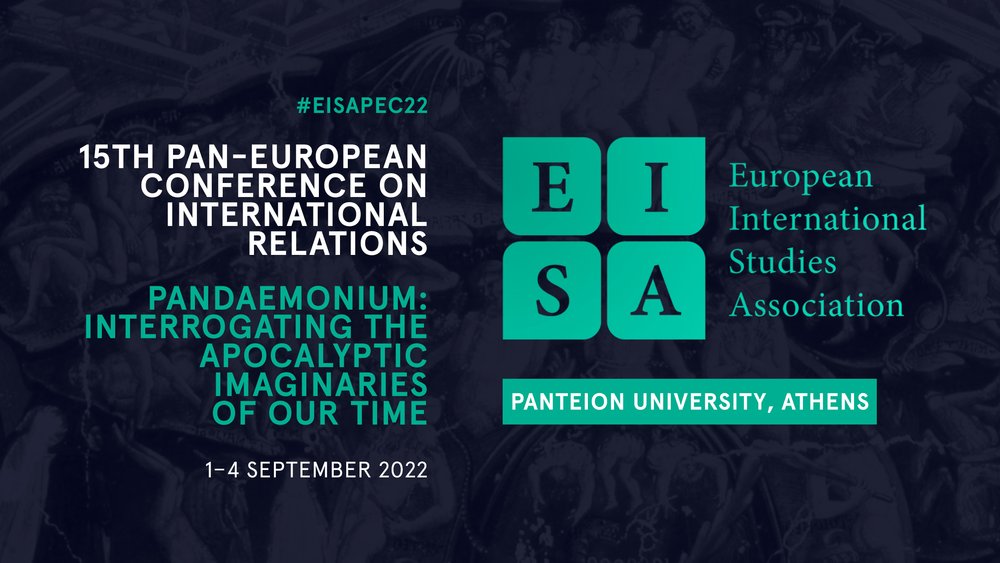
“Memory Governance in the Face of Apocalypse: Memory Laws, Rule of Law and Imperialism” panel at European International Studies Association conference in Athens
The MEMOCRACY researchers presented at the “Memory Governance in the Face of Apocalypse: Memory Laws, Rule of Law and Imperialism” panel at European International Studies Association conference in Athens on September, 4 2022.
Dr. Maria Mälksoo (University of Copenhagen) discussed “Deterrrence by other means. The international politics of domestic memory laws.”
Post-doctoral researchers Dr. Paula Rhein-Fischer (University of Cologne, Academy of Human Rights Protection) and Dr. Anna Wójcik (Institute of Law Studies, Polish Academy of Sciences) have presented their paper on the politicisation of memory laws’ judicial review.
Panel description
Putin’s aggression in Ukraine was ‘the return of history’, a moment that like no other in recent decades
demonstrated the existential threat of imperialistic historical imagination, history’s falsification, and
abuse for political ends. It was a culmination of a period marked in Russia by increasingly restrictive
historical policy, scrapping most of the remaining individual liberties and rejecting an international
order governed by law. Some democracies in Central and Eastern Europe have seen increased
attempts at mnemonic governance and destruction of the rule of law and broader democratic
standards in that decade. The panel reconstructs and explores how existential anxieties around
historical narratives shape politics, law, and international relations, and the constitutional character of
states. Laws and historical policies express diverse aspirations of non-democratic and democratic
states in CEE. Russia constitutionalized and tightened criminal laws related to the historical narrative
of WW II as an era of “liberation” of the Nazi-occupied territories, a classification firmly rejected by
other CEE states. Challenging this narrative in Russia became forbidden – a prelude to the violent war
in Ukraine. In turn, Poland, Hungary, and Ukraine have emphasized their long aspiring to
independence and condemned the Soviet and communist regimes, attempting to deter the everpresent threat of Moscow’s imperialism. Once pioneers of democratic transition, Hungary and Poland
have also used memory laws to pursue populist policies reinforcing the narrative of national
exceptionalism. They also restrict the freedom of historical debate through strategic lawsuits against
public participation and disloyalty propaganda, i.e. labeling persons as “traitors”.
Prof. Gábor Halmai (European University Institute) presented a paper “Political justice without the rule of law: memory politics in Hungary”.
Prof. Eric Heinze (Queen Mary University London) analysed “Disloyalty propaganda as hate speech”.
Dr. Marina Ban (University of Copenhagen) presented on “The legal governance of historical memory and the rule of law in France”.